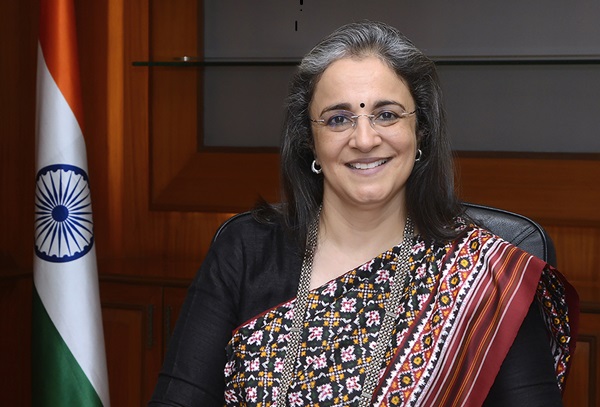.png)

Krishnadevan is Editorial Director at BasisPoint Insight. He has worked in the equity markets, and been a journalist at ET, AFX News, Reuters TV and Cogencis.
March 10, 2025 at 5:44 AM IST
Institutional memory is the backbone of effective financial regulation, ensuring consistency and informed decision-making as market complexity grows. A robust repository of past decisions, policy rationales, and leadership insights— including archived speeches—preserves regulatory continuity beyond individual tenures. When such records are missing, it weakens oversight and transparency.
The absence of speeches by former Securities and Exchange Board of India chief Madhabi Puri Buch from SEBI’s website is a glaring gap in regulatory communication. This may stem from Buch’s preference for extempore speeches, often guided by prepared notes rather than written texts. While this approach allows for spontaneity and nuance, it leaves little behind for archival reference. A regulator’s evolving stance on policy, innovation, and market oversight is often captured in these speeches, making their documentation crucial for institutional learning.
Regulatory agencies operate in a dynamic environment, constantly balancing effectiveness with efficiency. Leadership speeches serve as key markers of regulatory intent, shaping expectations for investors, businesses, and policymakers. Without proper documentation, the rationale behind critical decisions risks being lost, making it harder to track policy shifts over time.
This is particularly relevant as SEBI transitions under its new chairperson, Tuhin Kanta Pandey. His emphasis on trust and transparency, particularly regarding disclosures on board conflicts of interest, underscores the need for institutional memory. Documented speeches provide a baseline against which regulatory evolution can be assessed, ensuring continuity and accountability.
Blind Spot
Globally, top financial regulators recognise the importance of preserving institutional knowledge. The US Securities and Exchange Commission maintains extensive archives of leadership speeches, enforcement actions, and policy communications, ensuring continuity across administrations. This practice enhances transparency and helps market participants interpret regulatory shifts.
In India, archived speeches would benefit multiple stakeholders—policymakers, market participants, and researchers. They offer insights into the regulator’s thought process and provide context for key decisions. For instance, SEBI rejected a sandbox application in 2021 to test trading in fractionalised shares. Three years later, Buch publicly stated that the regulator had recommended fractional ownership of shares to the government. Without documented records, it becomes difficult to trace the evolution of SEBI’s stance on such critical market reforms.
Beyond policy shifts, archived speeches also help innovators understand regulatory thinking when testing new financial products. A well-maintained institutional record allows businesses to navigate compliance more effectively, preventing regulatory ambiguity from stifling innovation.
Each market cycle presents unique challenges, yet historical patterns tend to repeat. Research on the "institutional memory hypothesis" in banking suggests that organisations gradually relax standards as crises fade from memory, only to relearn hard lessons when volatility returns. SEBI’s failure to archive speeches raises concerns about whether key regulatory insights will be lost to time.
Documenting leadership speeches is not a bureaucratic exercise but an essential part of regulatory accountability. When Pandey emphasised transparency and conflict of interest disclosures, his statements set a direction for the organisation and its stakeholders. Without accessible records, tracking such commitments over time becomes difficult.
Given the public differences, the faceoff and the subsequent climbdown that Buch had with SEBI insiders, the absence of her speeches will not show the regulator in a good light, say, 20 years from now. In the absence of context to the missing speeches, the regulator risks being seen, in posterity, as vindictive of an outsider who chaired the institution. So, SEBI must transcribe Buch’s speeches from public events and archive the transcripts. Such a move would strengthen the regulator’s commitment to transparency.
The speeches would preserve valuable regulatory insights and reinforce SEBI’s institutional credibility in the long run. Regulatory intent must not be lost in transition—it must be documented, accessible, and preserved for posterity.




